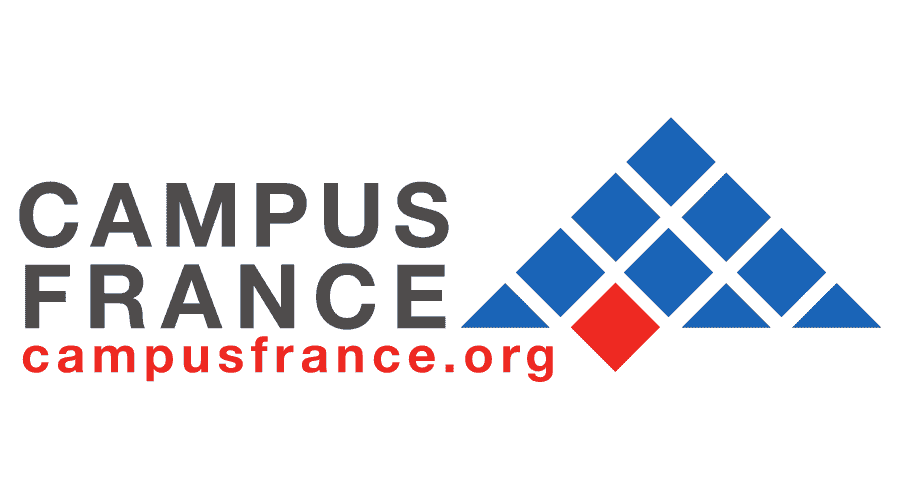(Editor’s note: This guide to obtaining a student visa for France was originally posted on American in Paris. It is reposted here with permission.)
The first time I ever stepped foot in France was as a student in 2012. I was there to do the elusive “study abroad semester,” which has a reputation for being more about soaking in the culture of wherever you go rather than taking classes. Spoiler alert – the rumors are true. Although I will say I attended most of my classes, they were nothing compared to the workload I was used to at my university. I had an architecture course in which the professor actually took us around Paris to explain treasures like Notre-Dame and Les Invalides. Interesting? Extremely. Do I remember everything about the architecture I learned about? Seeing as we didn’t have any exams, no.
In addition to 2012 being the first time that I stepped foot in France, it was the first time that I had ever left the United States. I never really considered myself a homebody or uninterested in travel, but an international trip was just not on my radar at the time. I didn’t even have a passport.
Fast-forward to 2020, and in total, I have about seven years of French living under my belt, three student visas, one au pair visa (when that still existed), and one visa I have courtesy of my French fiancé. I’ll soon find out what the newest chapter in my immigration journey – marriage – will be like.
Whether you’re in the same situation as I was in 2012, or you have a bit more international travel experience, navigating the world of French bureaucracy can be intimidating. This is the country that is known around the world for its “red tape.” And, to be honest with you, it is a lot to figure out especially if you don’t speak French or have never applied for a visa before.
In these unpredictable COVID times, the easiest (and most plausible unless you are in a relationship with a French person) way to move to France as an American for more than 90 days is through a student visa. Don’t let the word “student” scare you, especially if you’re not a teenager or in your twenties anymore. You could take a French language course, a culinary program, or simply shoot for another degree…for 1/10th of the price of American schools.
In an effort to help those interested navigate these sometimes murky waters, I’ve come up with this basic guide to obtaining a student visa in France:
Step 1: Determine your program
The most important thing you’ll need to do before you get started on the path to obtaining a student visa for France is to find a program. It’s important to note that not all programs will make you eligible for a visa. You will need to be enrolled in classes that are between 18-20 hours per week or more. Here are a few examples of the types of programs you should be looking for:
- a study abroad or exchange program (if you are currently enrolled in a college or university this is your best option)
- a degree-granting program
- French language program (please note that the program must be FLE accredited)
- a specialized school in France
You must be accepted into the program of your choice before you move onto Step 2. And, remember, don’t get discouraged if you don’t want to take French classes or go back to college. As mentioned, if you love to cook or are interested in wine, there are several options. Does the famous Le Cordon Bleu, ring any bells? Channel your inner Julia Child and check out their options.
You won’t be able to apply for your student visa until at most three months before your program starts, so keep that in mind as you continue on through the process.

Step 2: Apply through Études en France and Campus France
Once you’ve been accepted into your program, you’re ready to start the process of applying for your student visa. First, you’ll need to make an account on Études en France, a platform that was created by the French government to make applying for a visa easier.
Once you create your account you’ll have to follow the instructions on the site. It involves knowing the name of your program and finding it on a list, entering your personal information including your name and passport number, and other administrative information. There is an option for “students not yet accepted,” but I do recommend that you wait until you have been accepted to begin the process as it’s much easier.
Études en France and Campus France are connected so after you’ve filled in all of your information, you’ll be able to directly submit it to Campus France via the Études en France platform. You will also have to pay a fee of $190 (subject to change) to Campus France. It can take up to three weeks for Campus France to review your application. You will receive a confirmation email if and when you are approved.
Step 3: Apply for a student visa via the France-Visas platform
Once your application has been approved by Études en France and Campus France, you will move to the next platform, France-Visas. You already know that you need a student visa, so feel free to skip the “Do I need a visa?” step. Create your account and fill out the application form. Here you’ll note that “Visa applications cannot be submitted more than 3 months prior to the start of your trip for a long stay visa, and 6 months for a short stay visa” as I mentioned! Please also note that you will need to pay another fee of $37.15 (subject to change) when you’ve finished filling out your application.
Step 4: Make an appointment at the VFS Global Center closest to your home
After you’ve submitted your application on France-Visas, you’ll be able to directly book an appointment at the VFS Global Center closest to your home. It’s recommended on the site that you make your appointment at least 15 days before the date of your departure. In my experience, the longest I’ve had to wait to receive my visa was 7 days, but, I was also in Boston. Your consulate’s waiting time may vary.
Step 5: Go to the appointment and then wait to receive your visa
You’ve made it this far and for that, I congratulate you! But, you’re not out of the woods yet, as you still need to attend your in-person appointment where you’ll need to present a fair amount of paperwork in order to obtain your visa. You will need:
- France-Visas Visa application form
- France-Visas receipt of payment
- ID Photograph (please note that this needs to be a “European-size passport-style headshot” which is 1.4 inches by 1.8 inches)
- If you are a non-U.S. citizen, proof of your legal status in the U.S.
- Passport
- Campus France USA confirmation email
- Études en France electronic acceptance letter
- Proof of accommodation in France (this can be an Airbnb or hotel while you look for something more permanent)
- Proof of sufficient funds for your time in France
Pro tip? Bring at least 3 copies of everything. It’s a lot, I know. But you’ll have to get used it this amount of paperwork if you’re going to be living in France! At your appointment, they’ll ask you pretty standard questions such as why you want to move to France, why you chose your program, etc. Try not to be too nervous and just be honest.
Step 6: Begin preparing for your trip to France!
Now for the fun part: preparing for your long-awaited new life in France. Consider where you want to live, what you want to bring along, and your new daily routine. The road to the French student visa may be long, but it isn’t as complicated as it looks!
If you are interested in a private consultation on how to obtain a French student visa, or what happens after your visa expires and you want to stay in France, please feel free to email me at [email protected] to get started.

About the author:
Molli McConnell has lived in Paris since 2014 when she decided to leave her American life behind and pursue her dream of becoming a writer. Since living abroad, Molli has earned her master’s degree in English Studies with a concentration in literature and is now working towards making that becoming a writer thing happen.
If you’re interested in following your own dreams of moving to France, she also offers consulting.
You can follow her journey on Instagram @mollim, and if you like to read, Molli runs a female-focused book review website called The Mistress of Books. You can also follow her website on Instagram @themistressofbooks.
Molli Sébrier has lived in Paris since 2014 when she decided to leave her American life behind and pursue her dream of becoming a writer. Since living abroad, Molli has earned her master’s degree in English Studies with a concentration in literature and is now working towards making that becoming a writer thing happen.
If you’re interested in following your own dreams of moving to France, she also offers consulting.
You can follow her journey on Instagram @mollim, and if you like to read, Molli runs a female-focused book review website called The Mistress of Books. You can also follow her website on Instagram @themistressofbooks.















